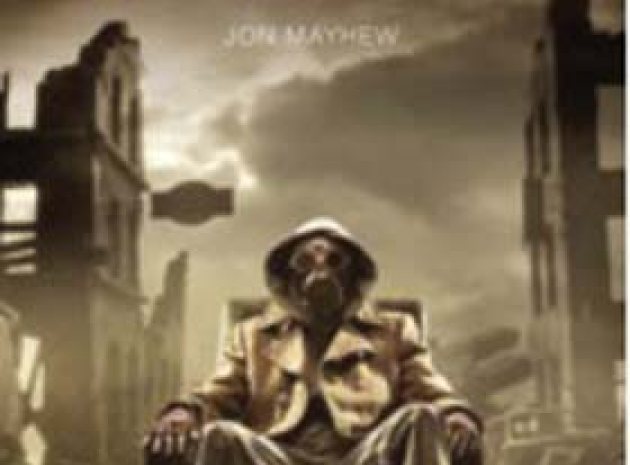Students increasingly need to conduct research and are asked to do so across the curriculum. They live in the information age and have more opportunities to conduct research than any other generation – yet many research tasks return little more than some offerings from others across the globe, copied and pasted carefully into beautifully presented work entitled ‘my research’. And we can’t blame students. The internet is a minefield and many of them are overwhelmed by such an information overload. We often ask them to present research, with little guidance of exactly how we’d like that done and with few models of what we want to see. I’ve tried all the rules of – no Wikipedia, reference your reading and ‘IN YOUR OWN WORDS’ – but with little success. I believe many students lack the skills to navigate the wealth of information available to them, and the confidence to give us their own voice. This lesson aims to make explicit to students what we really mean by research, and illustrates ways in which they can voice their own opinions and perspectives through research tasks using a straightforward framework that they can apply to any topic.
WHY TEACH THIS?
Asking students to write ‘in their own words’ can sometimes feel like an impossible task. So often the first instinct is to reach for Google and attempt to painstakingly translate what they find, word by word. This lesson give students the tools and confidence they need to conduct quality research.
STARTER ACTIVITY
Present students with the Wikipedia page ‘research’ (which is complicated and dense so as to demonstrate its drawbacks). In groups, ask them to create a definition of the term ‘research’ in their own words.
Take feedback from each group, asking them to share their responses and the process they used to create it (how did you make your definition in your own words?) This begins to establish what research may and may not include, and asks them to reflect on the methods they have used to produce ‘their own’ – highlight where this has been done successful and where it may have been hindered by attempts to ‘translate’ the original without really understanding it.
Then ask them whether it was easy or difficult, whether they had to rely on prior knowledge to create their definition, and to comment on whether they think the definition provided was ‘clear’, ‘useful’ and/or ‘reliable’. If not already covered through the discussion, ask ‘what is the point of research?’ and prompt them to consider ideas beyond information gathering – introduce the notion of adding something new to an existing body of knowledge.
Finally, ask students what point you may have been trying to make by giving them the Wikipedia definition. They are likely to be aware that Wikipedia may be unreliable, and this opens up conversation about the volume of information on the internet and how we might navigate it.
MAIN ACTIVITIES
Action stations
This example uses Charles Dickens’ Oliver Twist as the focus text, but this task can be adapted to suit any topic.
Explain that there are four stages of research that they are going to investigate. Set up four ‘stations’ around the room. Allocate a team of students to each one and give each team one of the key words: ‘Enquire’, ‘Establish’, ‘Explore’ and ‘Engage’.
At each base, present the following resources:
Enquire
Questions about the topic (who was Charles Dickens? When was the Victorian period? What was life in London like? What happens in Oliver Twist? Who are the main characters in the novel?)
Establish
Facts (a biography of Charles Dickens, a list of his works, some key dates about the Victorian period, a plot synopsis)
Explore
Connections – related topics (Information about child poverty; a factsheet about work houses; an explanation of the role of the church in the Victorian era; statistics about immigration to the UK in the 19th Century.)
Engage
Questions directed to the students (what differences are there between the life of a child in the text and your own experience as a child? What do you think we can learn from Dickens’ tale of Oliver? What social justice issues might an author write about today? What themes of the novel are present in today’s society?)
Give each group 5-10 minutes to explore the resources at their station and create a definition for that stage of research. Circulate the room prompting students where necessary. Take feedback and as a class discuss what order the stages would need to come in, and consider which require information gathering and which are about your own opinion and perspective.
Added value
Using A3 sheets divided into 4 large boxes, students now go round each station collecting information and adding their own questions; allow 15 minutes for this. The challenge is to ensure all information on their sheet is expressed in their own words, so students will need to discuss ways of summarising information. No quotations allowed! Explain that only information such as dates and place names may remain the same, so they need to make sure they’ve fully understood what they’ve read before writing.
ABOUT OUR EXPERT
Louise Hooper is Head of English at Eastbury Comprehensive School (twice recipient of the TES Schools Award for Literacy and English), and a Doctoral Researcher in Literacy and Language with the University of Sheffield.
HOME LEARNING
Conduct a research project employing the skills learnt today based on a topic of your choice (or this could be tailored to prepare for a new unit/complement a current scheme of learning etc).
STRETCH THEM FURTHER
Challenge pupils with the difficulty level of the research material you provide and the topics that you give them. if they can easily complete the tasks described here in the time you have, they could then create research resources for another topic (perhaps a different text, such as great expectations, in this case).
TAKING IT FORWARDS
Presentation skills are another area that students often struggle with, so following this lesson you may wish to work explicitly on how students present information once they’ve researched a topic, continuing to build on the idea of ‘in your own words’.
+KEY RESOURCE
New From Badger Learning, Teen Reads III: About Death Road… (Reading age 8-9, interest age 12-15, word count 7,000) Jon Mayhew superbly weaves a dystopian world with modern day characters in this exciting tale of courage and survival of the fittest, where desperation influences decisions that will ultimately affect the fate of the human race. It’s a more substantial title, but at 7000 words is still not too daunting for struggling readers; the dramatic storyline will keep students rooted to their seat until the last page has been turned. Just beware of the Snappers…
SUMMARY
Checking understanding Students now swap stations and look at another group’s research sheet. They can peer assess the research, checking that the group have used their own words to express ideas. Ask them also to discuss what is expressed differently to their own group’s work.
Reflection
Ask groups to reflect on their ‘engage’ section, then feedback one original idea they have about how the research relates to them.









